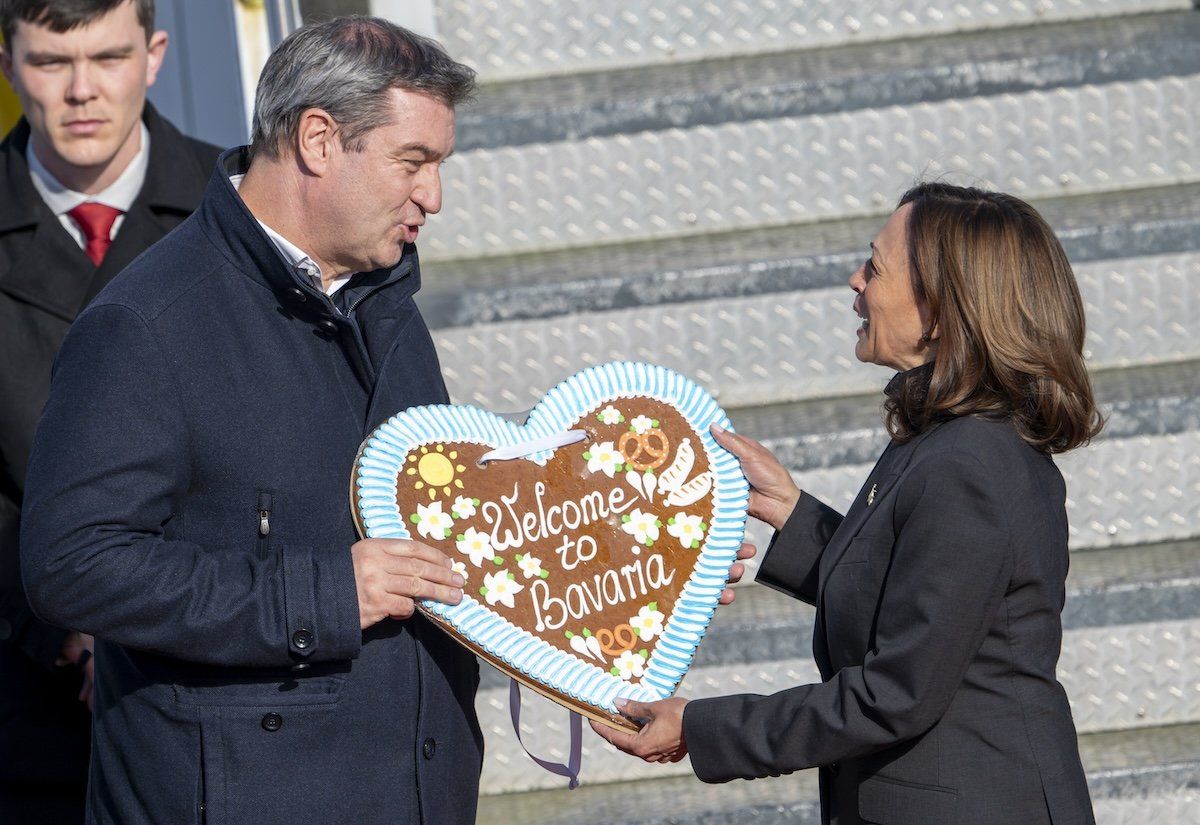Markus Söder, the prime minister of Bavaria, welcomes US Vice President Kamala Harris at Munich Airport as a guest of the Munich Security Conference.
The 60th Munich Security Conference is underway as world leaders gather in Germany to discuss diplomatic and military strategy.
US Vice President Kamala Harris will reaffirm Biden’s support for NATO after Donald Trumpthreatened to not protect members who fail to pay their dues. Recently impeached Homeland Security Secretary Alejandro Mayorkas, who may symbolize US dysfunction to allies, will also be on hand.
With the second anniversary of Russia’s invasion looming, debates on the level of continued support for Ukraine will demand attention. Russia was not invited to attend, but President Volodymyr Zelensky will be there to woo allies. He’ll also stop in Paris to sign a security agreement with President Emmanuel Macron for long-term aid, including support for reconstruction and military assistance, but it is expected to stop short of a pledge to send weapons. Zelensky will also meet with Chancellor Olaf Scholz.
China’s top diplomat, Wang Yi, will advocate for a multipolar world before traveling to Spain and France for bilateral meetings.
Israel is sending President Isaac Herzog and three rescued hostages. Herzog is planning a series of cease-fire talks and will face questions about Israel’s attack on a main hospital in Gaza on Thursday amid growing concern for civilians’ safety.
Here are 4 things you need to know about the MSC. Don’t forget to RSVP to GZERO’s Protecting elections in the Age of AI event, live streaming from Munich on Saturday!